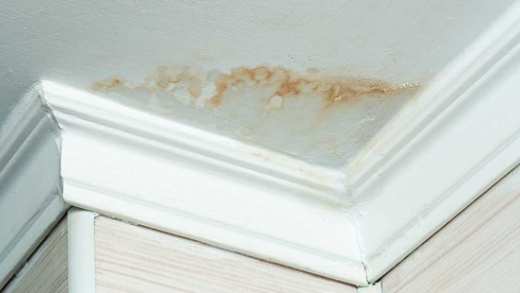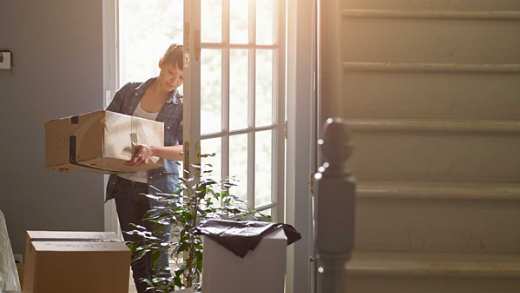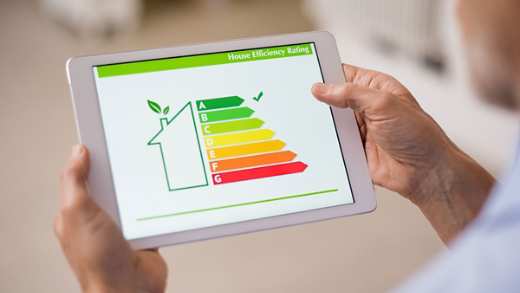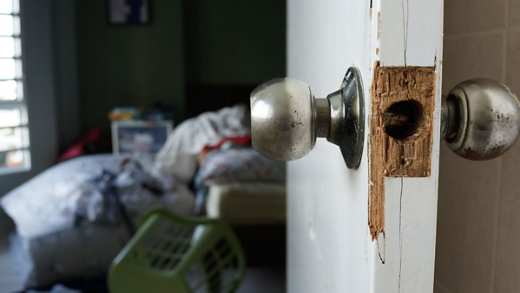In Ireland, we are blessed with generally mild weather. Even so, we sometimes have to deal with storms and the severe conditions that come with them. With proper protection and practice in place, you can really lessen the potential damage a storm can wreak on your home, saving yourself both stress and money in the process. We’ve broken down our home safety tips into what you can do before the storm, and what you can do after. We’re also discussing the potential damage you need to be aware of.

Storm Damages
Below are some of the most common ways a storm can affect or damage your property:
- Roof tiles: These are easily blown off in severe weather, and gutters and fascia's can also sustain some damage.
- TV Aerials and satellite dishes: Strong winds can sometimes tear these down, and they may be covered by your insurance. Click here to learn more about building and contents cover with Aviva.
- Broken glass: Glass in conservatories, greenhouses or outhouses can be damaged by severe winds. Take care if trying to remove the glass, wear protective gloves and eye goggles.
- Fallen trees and building damage: If a neighbour’s tree falls on your property and causes damage, your neighbour will likely have to make a claim on their insurance. Always be sure any trees in your garden are trimmed and healthy – if a diseased or badly maintained tree from your garden damages a neighbour’s property, you may be considered negligent and face a claim against you.
- Boundary walls: Your policy may not cover certain types of damage to fences, gates or hedges but it could cover boundary walls blown down in a storm. Check your policy booklet for details. This is covered by Aviva home insurance.
Tips to follow before a storm:
- Trees: Keep your car in a garage or an area within safe distance of trees in your garden. Contact your Local Authority to check if you can cut down or remove parts of any trees you feel could cause damage in a storm.
- Your garden: Loose objects such as garden furniture, bikes, toys, trampolines and ladders must be locked away or safely secured.
- Windows and doors: Close and lock all windows and doors securely in your home. If your TV has an aerial remove this in case of an electrical storm. Keep in mind that surge protectors can sometimes fail, so stay away from all computer equipment also.
- Roof: For your home insurance policy to remain in force, your home must be in a good state of repair. You should have your roof tiles checked once a year, and again after a severe storm, to make sure no tiles have come loose. Loose tiles could cause damage to your car, or your neighbour’s car.
- Gutters: Repairing damaged plasterwork can be very expensive, and if your gutters are overflowing or unkempt, a storm is likely to damage them and cause them to burst. This can wreak havoc on your plasterwork.
- Fences and gates: Secure all fences, gates or posts on your property. These can cause severe damage to your property and your neighbour’s property if blown away in a storm.
- Aerials and satellite dishes: If a storm is coming, or heavy winds, it is wise to have somebody come to check how secure your aerials or satellites are. Don’t attempt to do so yourself.
- Contents and building insurance: Make sure your contents and building insurance is up to date and includes all cover that you want for your property. You can only make a claim on damages caused as a direct result of a storm. If your home is deemed of poor maintenance, it will affect any claim you make.
- Car insurance: Cars are often damaged by fallen trees and other debris due to storms. If you want car insurance to cover this, you’ll need comprehensive insurance, because third party fire and theft does not usually cover this type of damage. Check the details of your policy.
What to do after a storm:
If your property has been affected by a storm, it can be frightening, but do not panic; there are some steps you can follow.
- Be careful: The most important thing is that you look after your safety. If your property has suffered damage, be wary of loose roof tiles that can come fall at any time. Look to check their condition from a safe distance.
- Contact your insurer: After a storm happens, insurers are expecting plenty of calls from concerned customers. They will have people prepared with the answers you’ll need. You can call our team at Aviva 24/7, 365 days a year on 1800 147 147.
- Check your cover: Your home insurance may cover things you don’t realise as standard. Check your policy document so you are aware of what you are eligible for.
- Take photos: From a safe distance, take photos of any damage that occurred. Make a list also, as this will be useful for your insurer to process any claims more smoothly.
- Keep receipts: If you make any emergency repairs such as roof repair or glass replacement, keep receipts of these for your insurer.
There are a lot of things to think about in terms of your property and contents when it comes to storm damage. Check our website for some answers.
Don’t forget, we offer help in a home emergency, including storm damage. To read more, click here.















